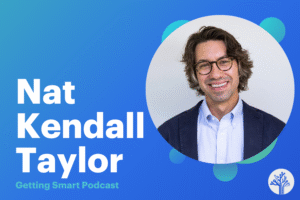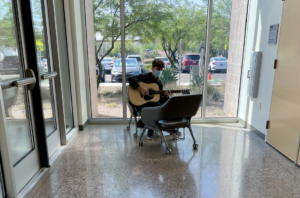Excited and Concerned about the Shift to Personal Digital Learning
 Based on a sample of about a hundred educators from 16 southern states, the shift to personal digital learning creates new opportunity and new concerns. In several settings, we discussed factors accelerating the shift:
Based on a sample of about a hundred educators from 16 southern states, the shift to personal digital learning creates new opportunity and new concerns. In several settings, we discussed factors accelerating the shift:
- Inexpensive mobile devices, learning apps
- The shift to online assessments led by two state consortia
- Advocacy efforts like Digital Learning Now
- The ‘new normal’ need to do more with less
Educators were most excited about:
- Mobile learning apps for students (including preschoolers)
- Flipped classroom and playlist homework
- Better student engagement and motivation
- Potential for extended learning time
- More feedback to students
- Customized learning: improving ability to vary level, mode, time, rate and social context
- The potential to serve special need students in better ways
- Allowing students that can to move faster
- Teaching in teams with more collaboration
- More options for students
- More location flexibility and no more snow days
Concerns included:
- Teacher preparation is completely inadequate
- Ongoing professional development: need more and better
- Providing student access:
- Policies and practices for bring-your-own-device
- Social etiquette online: boundaries and behaviors
- Administrative fear over lawsuits and new ways to get fired
- Worsening conditions of poverty
- Expanding role of private enterprise
- Class sizes increasing, both physical and virtual
- Budget impacts
- Everything: the volume of change headed for a school near you
The last comment is insightful—schools stressed from budget cuts will be asked to make massive shifts in the next few years—new standards, new tests, new strategies, new structures, new devices, and new demands. It’s a lot to deal with.
It’s time for states to put a stake in the ground on assessment and instructional materials and give districts a timeline they can plan against. Chunking the work into three or four phases will help. For example, here’s four projects districts should be working on this year:
- Move all AP and upper division STEM online
- Add credit recovery with full supports
- Pilot blended middle school math
- Pilot elementary learning labs and mobile learning
If we build productive partnerships, our students will benefits we’re excited about and we’ll mitigate many of the concerns.







0 Comments
Leave a Comment
Your email address will not be published. All fields are required.